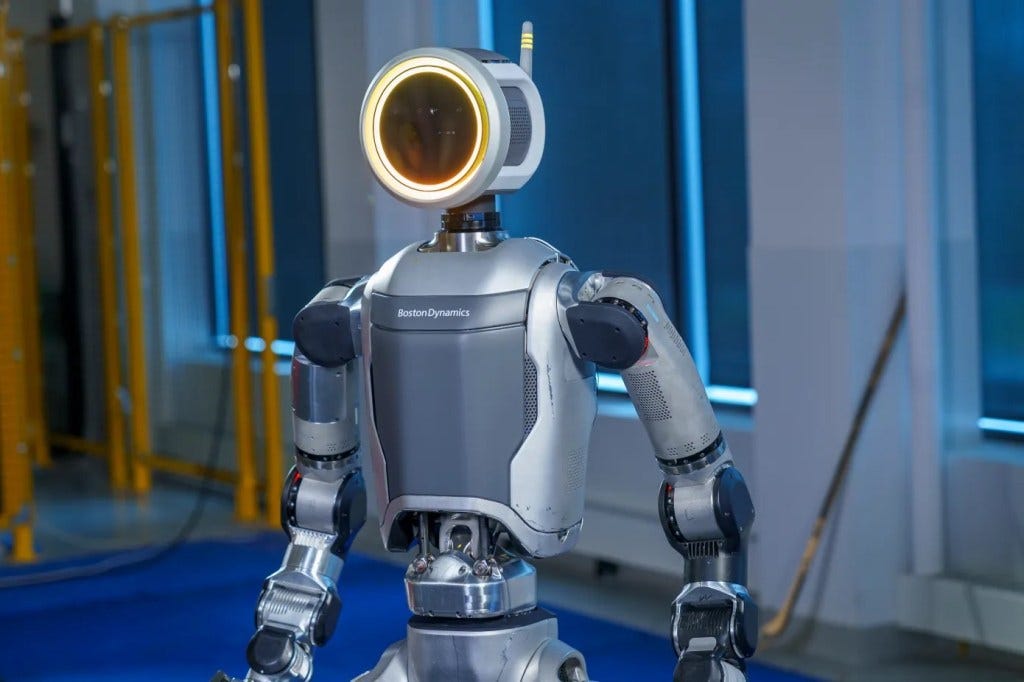A week in Generative AI: Swarm, Google & Mistral
News for the week ending 20th October 2024
There isn’t as much headline-grabbing GenAI news this week, but some interesting announcements nonetheless. First up we have Swarm from OpenAI, an experimental framework for orchestrating multiple agents. There is a report from Business Insider predicting that Google’s share of search will reduce to below 50% next year in the US. Lastly, Yann LeCun gave a great talk at the Hudson Forum where he set out his argument for why we need ‘world' models’ to get to human-level intelligence.
In ethics news there have been lots of reports about how the big tech companies are now investing heavily in nuclear power to power their AI ambitions. There’s a great piece of research from OpenAI which evaluates the fairness of their models and reports that Penguin Random House are adding language to their copyright pages to prohibit the use of their books to train AI.
OpenAI’s ‘Swarm’ Brings Agentic AI Into The Real World
For anyone who’s been reading my Beyond Chatbots series, you can imagine that I was very interested in learning more about Swarm, an experimental framework that OpenAI released this week to explore how to orchestrate multiple generative AI agents.
Frameworks like this are in our medium-term future with large language models as they can be used to co-ordinate lots of agents performing small simple tasks and roll them up into something that can complete much larger, more complex tasks.
There’s a bit of a technical walkthrough of how Swarm works here. In essence, you can define a list of broad instructions for an agent (in natural language, obvs!) and create a suite of tools for the agent to use so it can complete the tasks laid out in the instructions. The example used by OpenAI is of a customer support agent which then has the ability to look up information and issue a refund.
It’s great to see this approach shared by OpenAI and I think at some point next year we’ll see a platform from them that is powered by o1 and has these capabilities, opening up a whole new set of use cases for generative AI models!
Google's share of the US search market could drop below 50% for the first time in a decade
This is an interesting report from Business Insider, itself based on a report from eMarketer which I couldn’t find or source. It focusses on Google’s share of the US search advertising market and predicts that it will reduce to below 50% next year for the first time in more than a decade.
Google’s current share of the US search advertising market is around 75%, so this would represent a drop of over 30% in the next 12 months! The report cites changing search behaviours for younger audiences and the rise of generative search platforms like Perplexity and the impact of platforms like OpenAI’s ChatGPT and Anthropic’s Claude.
There aren’t enough details in this report to really substantiated these claims, but I share this as I think the trend is right and we will see Google’s share of search diminish over time. Not by 30% in the next 12 months, but I could definitely see that happening over a 2-3 year time frame.
Meta’s AI chief says world models are key to ‘human-level AI’ — but it might be 10 years out
This is a great article covering a keynote talk that Yann LeCun gave this week at the Hudson Forum. It feels like a great companion talk to last week’s long read from The Wall Street Journal where he said he thought current AI is dumber than a cat.
The key premise is that for AI to get to ‘human-level’ intelligence we need ‘world models‘. Current AI models only understand text, images, videos and audio because that’s what they’re trained on. They don’t have a grasp of the tangible, three-dimensional world that we live in because they’re not trained on real-world physical data. This is something that LeCun is working on at Meta’s FAIR (Fundamental AI Research) and some other prominent AI labs are working on this too.
For me, this can be simplified down to a debate on whether AI needs ‘embodiment’ for it to be truly intelligent (i.e. does AI need to be able to operate in the physical world). For AI to have ‘human level’ intelligence, I think it does need embodiment as much of our intelligence is derived from our physical experiences. But that shouldn’t rule out other forms of intelligence that can contribute a huge amount to humanity. We probably needs a more nuanced definition of intelligence - I like ‘human-intelligence’ but maybe we also need a term like ‘digital intelligence’ to refer to purely digital AI systems?
Boston Dynamics teams with TRI to bring AI smarts to Atlas humanoid robot
I loves me some robots so it’s great to see arguably the leader in robotic hardware (Boston Dynamics) partnering with Toyota Research Institute (TRI) to bring intelligent software to the new electric Atlas robot.
TRI has been working on robot learning for a long time and has been able to get robots to 90% accuracy when performing household tasks. That sounds pretty good to me, as I’m not sure I’m 90% accurate myself 🤓.
Really looking forward to seeing what this partnership can bring to Atlas and some fun demo videos next year!
AI Ethics News
Tech’s Race to Go Nuclear Is Exciting. It’s Also Going to Be Really Frickin' Hard
Penguin Random House is adding an AI warning to its books' copyright pages
Experts say OpenAI's patent pledge amounts to little more than 'virtue signalling'
Microsoft could end up with substantial equity in the restructured, for-profit OpenAI
The New York Times warns AI search engine Perplexity to stop using its content
Long Reads
Emergent Behaviour - First Contact
The New York Times - Microsoft and OpenAI’s Close Partnership Shows Signs of Fraying
“The future is already here, it’s just not evenly distributed.“
William Gibson










My guess is that it's to ensure that they have access to a reliable carbon-neutral energy source. Most other renewable energy generation options, such as wind or solar, can't guarantee energy 24/7.
Why are tech companies investing in nuclear power when there are cheaper and less risky options of power?